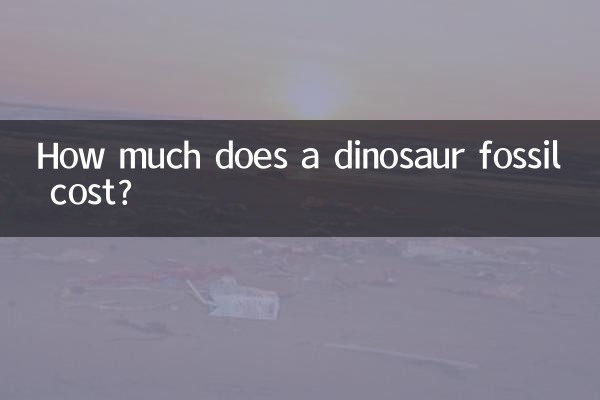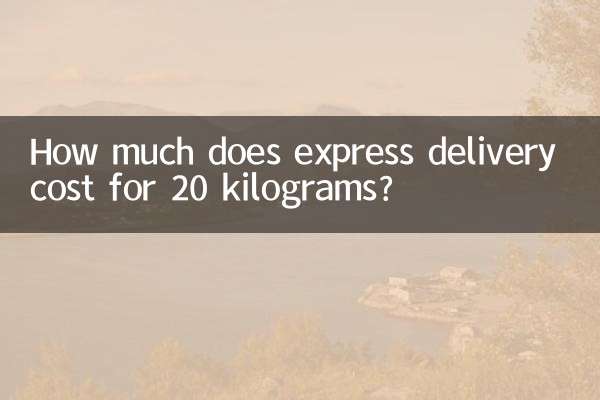How much do dinosaur fossils cost? Revealing the Global Dinosaur Fossil Market
Dinosaur fossils have always been a popular topic among paleontology enthusiasts and collectors. In recent years, with the deepening of paleontological research and the active auction market, the price of dinosaur fossils has also attracted much attention. This article will combine the hot topics and hot content on the Internet in the past 10 days to reveal the market situation of dinosaur fossils and provide structured data for reference.
1. Overview of the dinosaur fossil market

The price of dinosaur fossils is affected by many factors, including the completeness, rarity, scientific value and market supply and demand of the fossils. The following are the reference prices of several common dinosaur fossils on the market recently:
| Fossil type | integrity | Price range (USD) | Remark |
|---|---|---|---|
| Tyrannosaurus teeth | whole | 1,000-5,000 | The larger the size, the higher the price |
| Triceratops skull | whole | 250,000-500,000 | High rarity |
| Velociraptor Claw | whole | 10,000-30,000 | High scientific value |
| dinosaur egg fossil | whole | 5,000-50,000 | Quantity determines price |
2. Recent popular dinosaur fossil auction cases
Based on hot content in the past 10 days, here are several eye-catching dinosaur fossil auction cases:
| Auction time | Fossil name | Auction price (USD) | auction house |
|---|---|---|---|
| October 15, 2023 | Tyrannosaurus Rex Skeleton ("Stan") | 3,100,000 | Christie's |
| October 20, 2023 | Triceratops skull | 480,000 | Sotheby's |
| October 25, 2023 | Velociraptor skeleton | 1,200,000 | Bonhams |
3. Key factors affecting the price of dinosaur fossils
1.integrity: The completeness of the fossil is the primary factor that determines the price. A complete skeleton or skull is much more valuable than a fragmented fossil.
2.rarity: Fossils of certain dinosaur species are rarer. For example, Tyrannosaurus fossils are more valuable than Hadrosaurus fossils.
3.scientific value: Fossils that are scientifically important, such as new species or well-preserved soft tissue fossils, will have significantly higher prices.
4.Preservation status: The preservation status of the fossil directly affects its value, including the degree of mineralization, color and structural integrity.
4. Things to note when collecting dinosaur fossils
1.legality: Before purchasing dinosaur fossils, be sure to confirm that their sources are legal to avoid violating relevant laws.
2.Professional appraisal: It is recommended to identify the authenticity and scientific value of fossils through professional institutions.
3.Saving conditions: Dinosaur fossils require a proper preservation environment, and humidity and temperature control are crucial.
4.investment risk: The dinosaur fossil market is highly volatile, so investment needs to be cautious.
5. Forecast of future market trends
According to expert analysis, with the deepening of paleontological research and the increasing public interest in dinosaurs, the market demand for dinosaur fossils will continue to grow. In particular, prices for complete skeletons and fossils of rare species are expected to rise further. However, various countries' restrictive policies on fossil exports may affect market supply.
All in all, the price of a dinosaur fossil can range from a few thousand dollars to millions of dollars, depending on a variety of factors. For collectors and investors, in-depth understanding of market conditions and professional knowledge are crucial. We hope that the data and analysis provided in this article can bring you valuable reference.

check the details

check the details